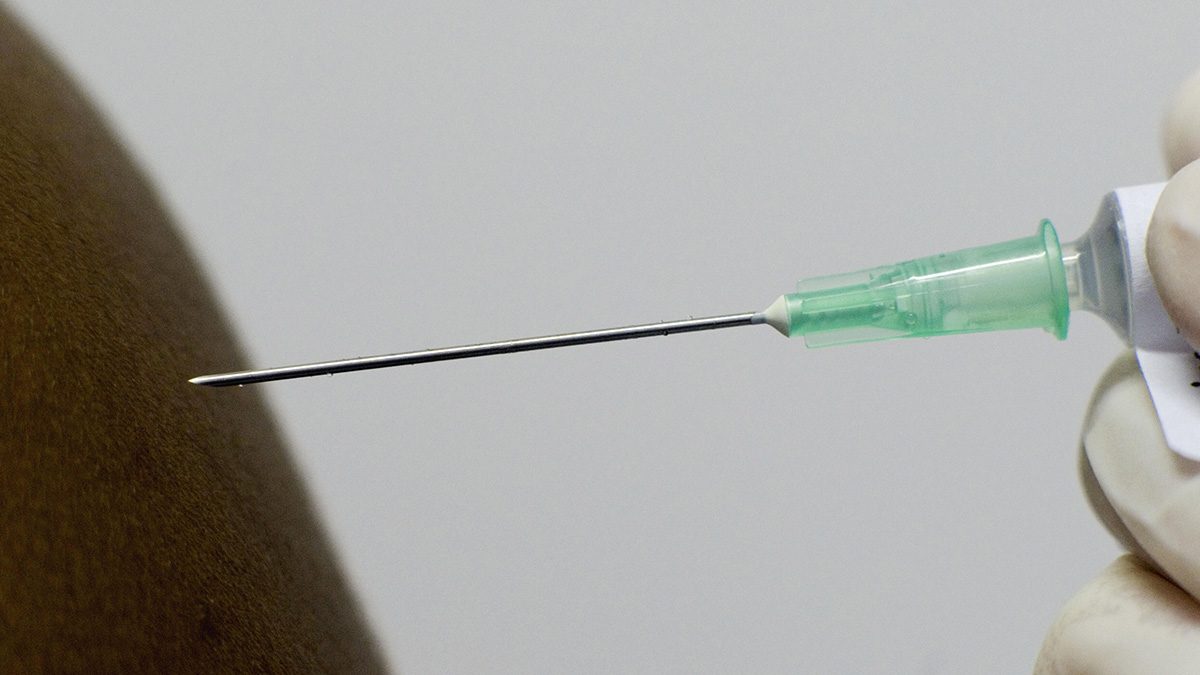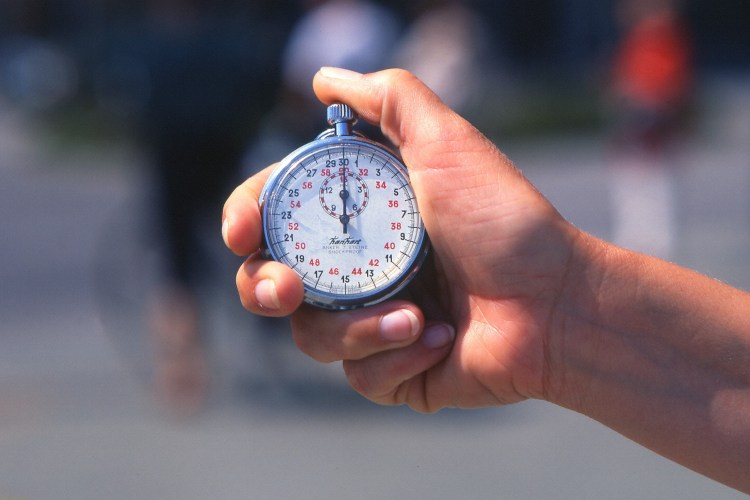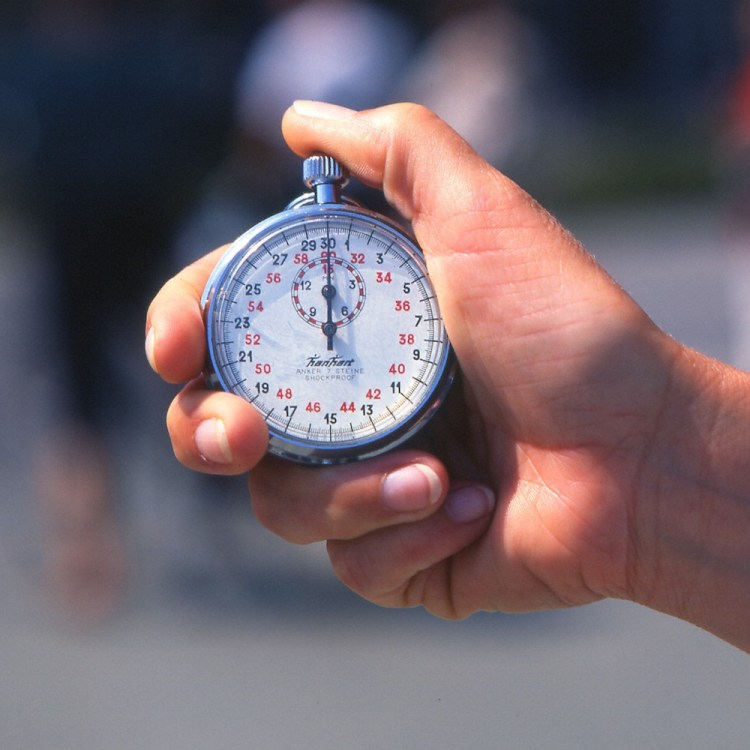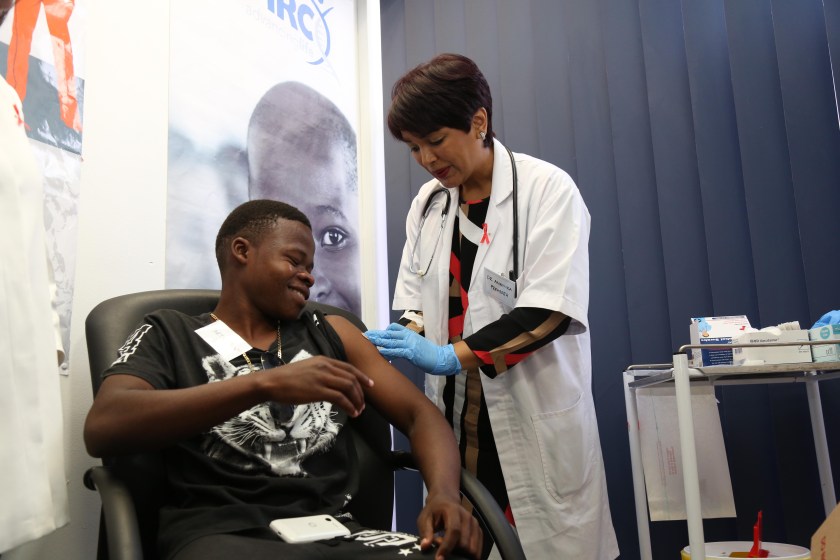
South Africa recently began a major clinical trial of an experimental AIDS vaccine, which scientists hope could be the “final nail in the coffin” for the disease.
The new study, known as HVTN 702, will involve more than 5,400 sexually active men and women aged 18-35 in 15 areas around South Africa over the course of four years. It is one of the biggest clinical trials involving the disease ever undertaken and has revived hopes in the scientific community of a breakthrough in the battle against AIDS.
“If deployed alongside our current armory of proven HIV prevention tools, a safe and effective vaccine could be the final nail in the coffin for HIV,” said Anthony Fauci, director of the U.S. National institute for Allergies and Infectious Diseases (NIAID). “Even a moderately effective vaccine would significantly decrease the burden of HIV disease over time in countries and populations with high rates of HIV infection, such as South Africa.”
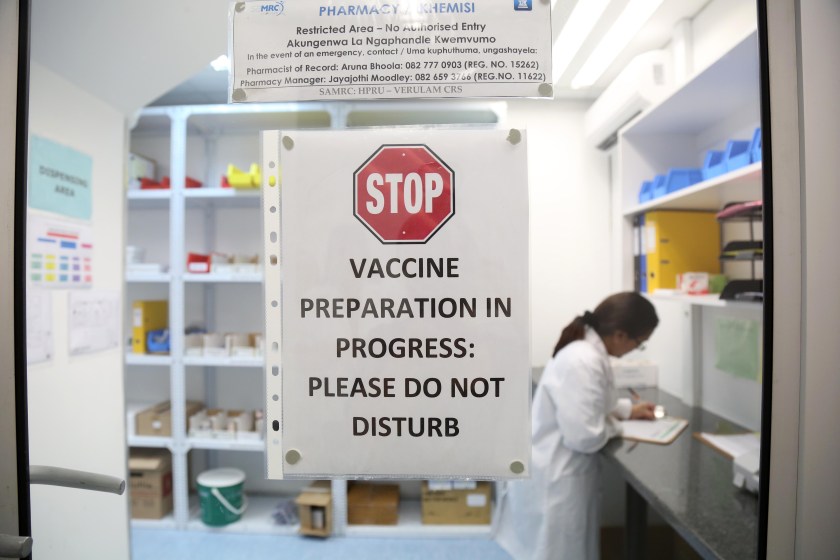
Specially Adapted
South Africa was not chosen by accident. The country has one of the highest rates of HIV infection in the world—19.2 percent according to the UN AIDS agency—with more than seven million people infected.
The vaccine has been adapted for the HIV strain prevalent in southern Africa from one used in a trial of 16,000 people in Thailand in 2009, which reduced the risk of infection by more than 30 percent for three-and-a-half years after the first vaccination.
The safety of the “South African” vaccine has already been tested successfully over 18 months on 252 volunteers. The new study aims to test its effectiveness as a virus-killer.
Vaccines work by priming the body to respond with germ-fighting antibodies whenever a virus or bacteria invades. But the AIDS-causing virus is stealthy and quick to mutate to avoid being targeted.
“The results obtained in Thailand are not good enough for a rollout … [so] we have set the minimum bar at 50 percent lower risk,” Lynn Morris, head of the HIV virology section at South Africa’s National Institute for Communicable Disease (NICD), told AFP.
South Africa’s Deputy President Cyril Ramaphosa told Parliament earlier this month that “scientists expect the [new] vaccine to be at least 50 percent effective, but hope that it will be much higher.”
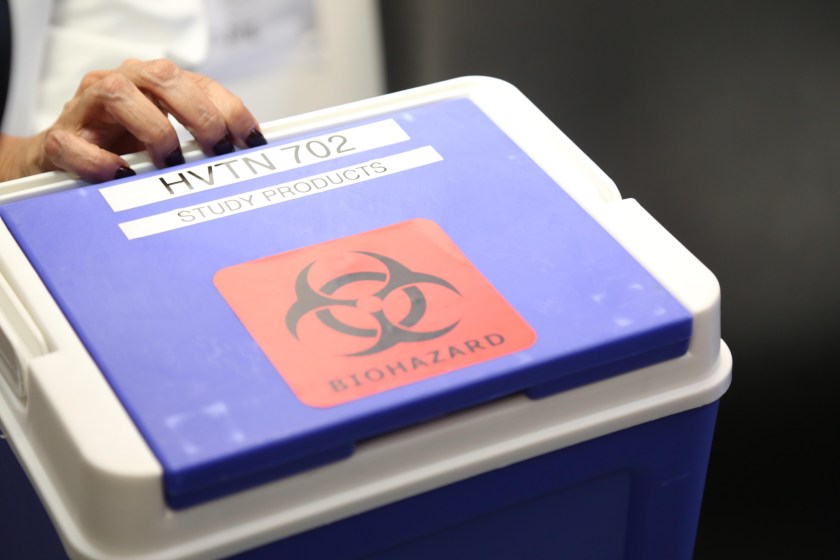
Results to Take Years
Even if the new vaccine proves effective, experts warn it is vital to remain vigilant in the fight against HIV.
“A highly efficient vaccine would be a game-changer but the results of these trials will take years,” Morris said. “We must continue to use other HIV prevention tools to reduce the number of new HIV infections, particularly in vulnerable populations such as young women, who continue to be most heavily affected.”
Condoms are still vitally important to preventing the spread of HIV, which is mainly transferred through the sexual fluids and blood of infected individuals. A small number of people, mainly in developed countries, use virus-suppressing drugs as a preventive aid, although the exact level of protection this offers is not clear.
According to UNAIDS, half of the 36 million or so people with HIV around the world have access to anti-retroviral drugs (ARVs), a figure that has doubled in five years. Thanks to these treatments, which keep the virus in check and increase the lifespan of HIV-positive people without curing them, average life expectancy in South Africa has risen from 57.1 years to 62.9 years since 2009, according to authorities.
The new trial is being carried out by the U.S. National Institutes of Health, the South African Medical Research Council, the Bill and Melinda Gates Foundation, Sanofi Pasteur, GlaxoSmithKline, and the HIV Vaccine Trials Network. —Relaxnews
For more on the new trial, watch the video from VOA News below.
The Charge will help you move better, think clearer and stay in the game longer. Subscribe to our wellness newsletter today.
